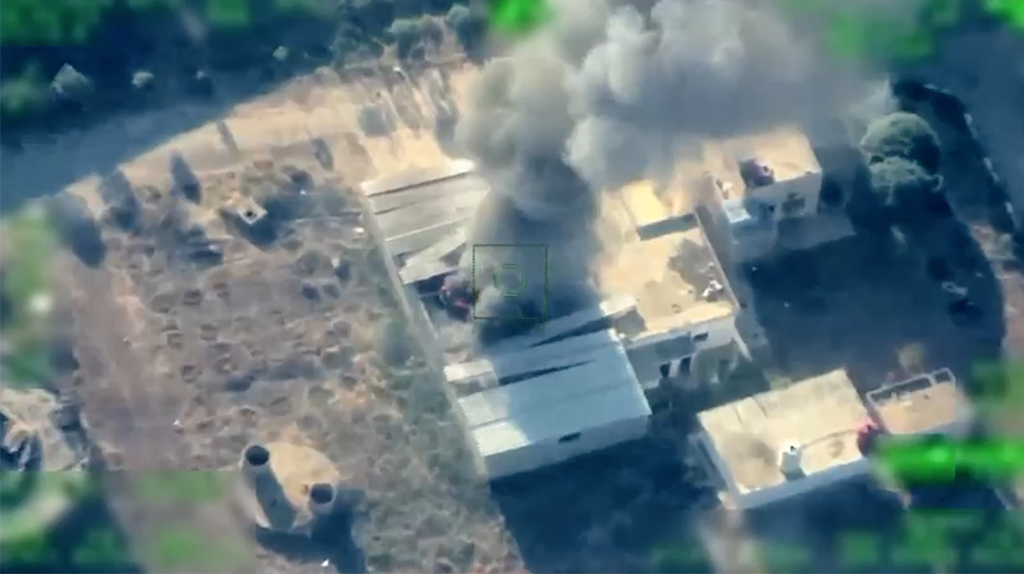
A Futile Attempt to Force Turks into Submission
By attacking a popular nightclub in Istanbul, the terrorists wanted Turkish people to accept defeat but the only way out of the current situation is to keep going forward
Share
In the first hours of 2017, a terrorist with considerable field experience used his AK-47 to kill 39 people who were ringing in the new year at a popular nightclub in Istanbul. The shelling was a new addition to tactics employed by PKK and Daesh – suicide attacks and car bombs. If anything, it was a variation on the assassination of Russian Ambassador Andrey Karlov by a Gülenist Terror Group (FETÖ)-linked gunman last month. Although unprecedented in Turkey, the assault was quite similar to fatal shootings in Paris, Orlando and Nice.
In the absence of effective counterterrorism cooperation and an end to the practice of hiring terrorists as proxies, terrorism will continue to claim victims. To make matters worse, as Turkish Prime Minister Binali Yıldırım recently noted, no country is immune to the threat of terrorism.
In Turkey, where a series of terror attacks took place last year, each new assault fuels anger and charges the public debate on terrorism's causes, perpetrators and remedies with emotion. Nonetheless, it is imperative to acknowledge that lack of sound analysis helps the terrorists and draw the right conclusions from our experiences.
It is true that Turkey faces an unprecedented terrorist threat, the root cause of which is the civil war next door. In the face of such senseless pain, blaming politicians is an easy way to vent. Calling political leaders names, such as Islamist and reactionary, and accusing them of complicity is outright hostile. Instead, what we desperately need is a rational discussion on long-term strategy.
To accomplish our goals, we must accept that the terrorists are not attacking Turkey blindly and without a broader plan. Needless to say, each terrorist group we face today is perfectly capable of strategizing and has a deep understanding of regional affairs. As such, they can accurately predict how a given player will respond to acts of terrorism. Most importantly, they tailor their plans to maximize the capacity of terror attacks to fuel social tensions.
Contrary to popular belief, the latest terror attack was not about making a statement regarding secularism or secular lifestyles in Turkey. Instead, it was specifically designed to turn the Turkish people against each other by fueling tensions between seculars and conservatives. In other words, the terrorists targeted the country's values, institutions and future.
To be clear, terrorist groups everywhere exploit domestic tensions to further their agenda. A case in point was the aftermath of Sunday's assault: While the domestic opposition accused what they called the Sunni government of facilitating the attack, Daesh issued a statement accusing Turkey of serving the crusaders, sheltering Christians and betraying Islamic values.
It is also important to acknowledge that Turkey has no choice but to make counterterrorism its top priority at least until a clear road map emerges to end the violence and rebuild state capacity in Syria and Iraq – where terrorists have found a safe haven in recent years.
At this time, Turkish officials are working hard on the ground and in the diplomatic arena to broker such an agreement. Both the Astana process and Operation Euphrates Shield serve the same purpose. In this sense, it is not Turkey's regional policy that creates the problems we face today, but the fact that measures implemented to address one challenge tend to temporarily aggravate other problems.
For years, policy experts claimed that Turkey faced a terrorist threat because it was not actively involved in the fight against Daesh. Nowadays, the same armchair generals like to believe that the terrorists are attacking us because we are actively fighting them. Until now, the Turkish people paid a heavy price to reach the conclusion that we cannot just watch the clashes from the sidelines. Hence Turkish President Recep Tayyip Erdoğan's commitment to striking terrorism at its source.
There is no shortage of "brilliant" ideas to get rid of the Daesh threat either. Some people believe that Turkey should negotiate with the PKK at home and strike a deal with the People's Protection Units (YPG), the PKK's Syrian franchise, across the border. It is difficult to understand how people cannot anticipate the damage the PKK could inflict on Turkey if the group's so-called cantons in northern Syria attain some level of legitimacy.
By attacking a popular nightclub in Istanbul, the terrorists wanted to turn us against one another and force us to accept defeat. But the only way out of the current situation is to keep going forward.
[Daily Sabah, January 5, 2017]
Tags »
Related Articles








